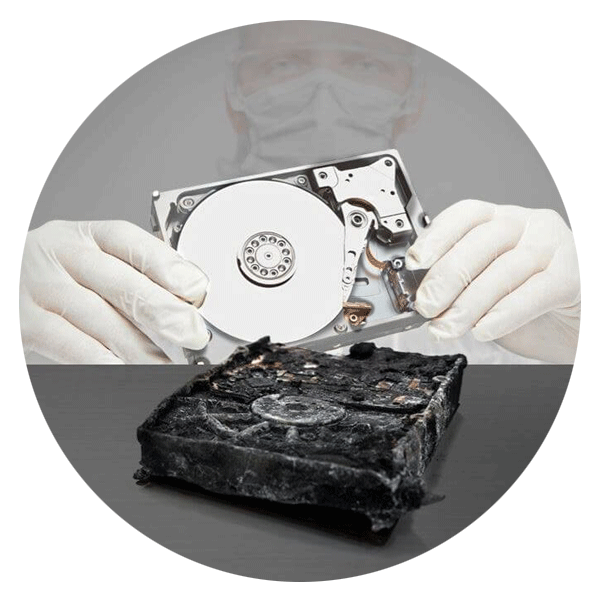Got a smart TV? Beware of data loss
TV of the future
The beautiful new world of ‘smart’ TV was one of the highlights at last year's IFA, one of the major events for consumer electronics and home appliances in Berlin, Germany. Watching TV on giant screens and in top quality has become almost taken a side step and instead the idea of having a connected TV is becoming more sought after.
All in one place
TVs with an Internet connection are starting to replace traditional PCs in some homes, allowing access to apps like YouTube and Facebook without being confined to the small screen of a smartphone. With a built-in webcam Skype can be used and TV is no longer dependent on the standard channels and schedule - you can choose the content you want on demand and watch whenever you like. The HbbTV format (Hybrid Broadcast Broadband TV) has since become the standard worldwide.
Technically-minded users can store all of our videos, pictures and music on a NAS system connected to the home network, in order to be able to view or listen to them on all connected devices. Now your last holiday movie can also be viewed on your smart TV – it’s almost like having your own home cinema! It is obviously also now possible to stream, which makes (with fast internet connections) the storage of movies on an external hard drive unnecessary.
How good is too good?
A disadvantage of these smart TVs is that data is not only received, but it is also sent back to the manufacturers and the broadcast stations. Also potential espionage possibilities were detected, as the microphone and webcam can be switched on from outside.
If you want to record anything from your TV, you’ll need an external storage medium like a USB hard drive or a digital disk drive recorder. In some cases, the connected USB hard drive is formatted into a vendor format, and content stored on it is no longer as easily accessible from other devices, like your laptop. Manufacturers usually have their own, different Linux-like operating system, which means that direct playback is not possible on Windows or Apple devices. The same applies to the hard disk recorders; in most cases, the film files have to be converted into common formats, in order to be able to view them on other devices such as your mobile or home computer.
As with anything 'smart', there are risks involved
If you’ve got a hard drive or the recorder connected and it gets knocked off your TV stand or fails without warning, you might find that the films and shows are no longer accessible. What’s more, there is not usually the possibility of restoring the data using free tools from the Internet. To successfully restore the information, a good amount of Linux knowledge would be needed to dig deep into the file system.
If you have suffered a loss of data on an (internal or external) TV or recorder hard drive and do not wish to part ways with the content you’ve recorded, do not connect the hard drive to a PC - it will try to format the drive and this will mean losing everything.
If you can’t download your content again and you’re looking for options to get it back it is better to get in contact with a professional data recovery service provider like Ontrack. It may be possible to recover your information using specialist tools and equipment, no matter how exotic the file system is.
Have you ever lost data from a hard drive connected to your Smart TV? Let us know by tweeting @DrDataRecovery

